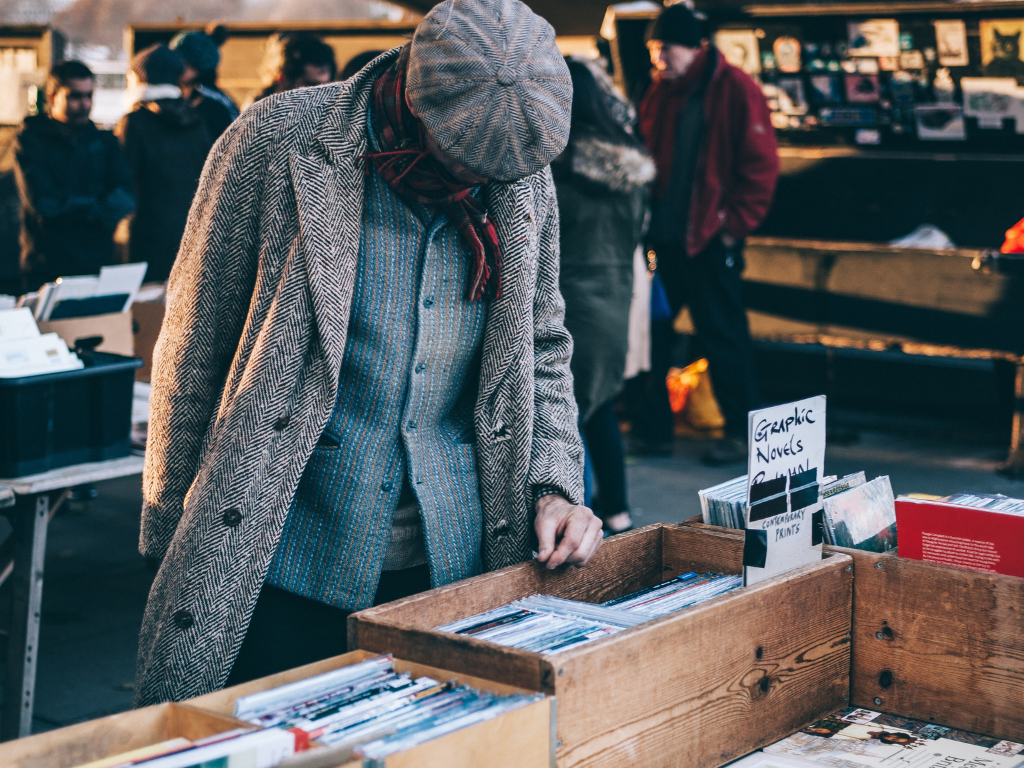Antiques are items with a soul, highly sought after by history enthusiasts and those with a penchant for unique interior decor. As these are not mass-produced, caution is essential to avoid falling victim to deception when purchasing antiques. In this post, we outline the rules to adhere to when buying antiques.
Cover Photo by Clem Onojeghuo on Unsplash
How to Buy Antiques – Initial Steps

If you intend to buy antiques, the first step is to educate yourself. Spending money will always come, but it’s better not to spend blindly without certainty that you’re dealing with an authentic item. The time invested in education is always worthwhile, although it may be a bit tedious. If you already know the types of antiques you like, you have a starting point. Simply find out what styles they represent.
Learn about the styles in which antiques were produced. Understand what Art Deco or Art Nouveau precisely mean. Know what it signifies when a piece of furniture is labeled Louis XVI. And Empire doesn’t only refer to “Star Wars.” As you examine items and compare styles, you’ll recognize certain characteristic features. Over time, you’ll become adept at distinguishing them. Additionally, antiques were marked with the characteristics of individual craftsmen – a kind of signature. Just like modern shoe manufacturers have brands, centuries ago, furniture or silverware craftsmen competed with each other, aiming for easy recognition.
Remember that each type of antique was marked differently. Furniture would bear the name of the craft and the craftsman’s name, while tableware would have hallmarks. Antique clocks often have inscriptions of clockmakers on both the face and the mechanism. Where to find this knowledge? It’s best to consult an appraiser or buy a book on a specific style or a guide for antique enthusiasts. The devil is in the details, and it’s worthwhile to know them before making any purchases.
How to Buy Antiques – In-Person or Online
The truth is, valuable antiques can be bought both online and in physical stores. If you’re looking for antiques from a specific country, check the local online auction portals. You’ll find the most interesting styles there without leaving your home. Yes, it might seem a bit risky, but you don’t have to buy anything. It could be part of your education on antiques.
Of course, you can browse local online platforms. However, visiting an antique store in person is the best option. Direct contact with the item of interest will give you certainty about its authenticity. If you’re buying an antique as a gift for a housewarming, take the person with you. The trip itself is a great gift, and antiques are unique enough items that it’s better not to buy them blindly.
Furthermore, you can negotiate with the antique dealer. However, don’t expect significant discounts. Antiques dealers are well aware of the value of the items they sell. Besides, these are not mass-produced goods, so you may need to invest in antiques. But this doesn’t mean you always have to empty your wallets. Searching for antiques is like hunting for treasure; there’s always an opportunity to find something special.
Flea Market Antiques

If you’re looking for savings, hunt for antiques at flea markets and antique fairs. Some people want to quickly get rid of clutter, and among them, you can find genuinely excellent pieces. This happens because not everyone realizes the true value of what they have. Grandma’s old clock may not be a worn-out relic but a unique item crafted by a renowned artisan. The seller simply doesn’t know its entire history.
This method of buying antiques is associated with another approach. You don’t necessarily have to buy an antique that looks brand new. On the contrary, furniture for restoration or clocks for repair can be purchased very cheaply, and their value increases after restoration. Plus, you have the satisfaction of saving a beautiful item from the sad fate of being discarded. Therefore, don’t be discouraged if antiques are not in perfect condition. With a bit of work, they’ll regain their vitality.
However, the most popular method of buying antiques is through auctions. This is where you’ll most often find unique items like natural pearls and items that once belonged to historical figures. This option is for the very affluent and well-versed in the antique market. Antiques purchased at auctions are often treated as investments and capital assets.

